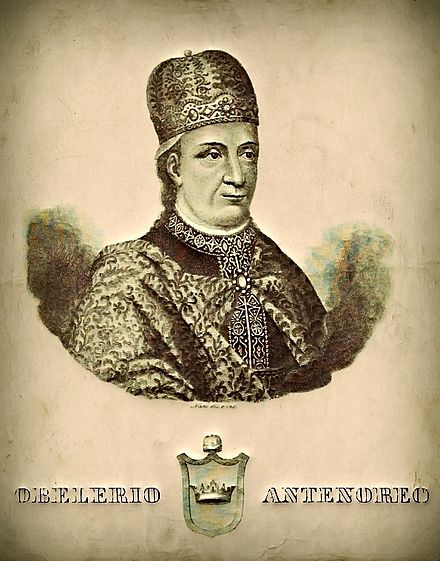Welcome to episode 2 of the limited history of Venice, where we move from abstractions and big picture to a particularly turbulent decade in Venetian history. People get thrown off buildings, coups and counter-coups occur, refugees go back and forth and some carbs are thrown in displays of reckless bravado.
If you want to catch up on the Venice series so far, click here.
A few notes and clarifications from the video.
Coups and the Office of the Doge
Generally, throughout Venetian history, coups and popular uprisings are the exception rather than the rule. The Venetian upper class, in the early republic, was not above using public discontent to create regime change--as the Antenori did to oust the Galbrai. This wasn't the only time the people helped in this way--and it was something that made the oligarchs rather nervous. People, participating in high-level governance? Simply bad form.

This sort of mass mobilization was not uncommon in the early days of the Venetian republic--but as has previously been noted, the Venetian oligarchs viewed the personal popularity of a doge as a liability for partly this reason. This sort of popular uprising would have been unthinkable in the late republic--by that point, the oligarchy had tightened its hold sufficiently to prevent such things. We'll talk about this shift later--in fact, it gets its own episode down the line.
The Myth of Venetian Defensive Invincibility
Later Venetian chronicles would paint Pepin's defeat as inevitable or as truly beginning the founding (and consolidating) of Venetian power and identity. Certainly, this is...an interpretation of the facts. Certainly, it was in the best interests of Venice to make the close call they had with the Carolingians look like a pre-ordained victory.
Indeed, Venetian history would try to treat the Carolingian invasion as a complete turning point in their history--that drew the communities of the lagoon together. JJ Norwich in his History of Venice writes:
"More than once in the past, the lagoon settlers had asserted their right to exist as an independent entity, in that year, for the first time, they fought for it and proved it. And in doing so they also proved something else--that whatever the rivalries and jealousies of those early times, in a moment of real crisis they were capable of seeing themselves not as men of Malamocco or Chioggia, of Jesolo or Pelestrina, but as Venetians. Pepin had marched against a group of bickering communities, he had been defeated by a united people."
Some writers, like Neal Robbins, call into question the popular wisdom that Venice was nearly impossible to invade from land or sea, or that Pepin's defeat was a fait-accompli. Sure, it was difficult--but not impossible. The Carolingians came within a whisker of victory in their invasion of the lagoon--had Pepin not taken ill, things might have turned out quite differently. While it may have been true that the Carolingian invasion might have created a sense of solidarity and unity, the truth and chronology of the break-away from the Carolingian empire was likely well after this event, as the Carolingians fell to infighting. To quote Robbins about the fallout from the events of 810:
"Venetian historians described this strategic retreat in heroic terms, claiming Venice used superior knowledge of the lagoon to fend off the Frankish attack, when in fact the Franks arrived over water and land, suggesting the Venetians had no exclusive claim to lagoon know-how. They began to appreciate the defensive value of the lagoon only in retrospect....the official histories claim the Venetians chose at that point to throw themselves in with Byzantium. But that's not chronologically possible. Byzantium had no political power in the Western Mediterranean at that time. In Frankish history, in fact, the episode is recalled simply as a matter of putting down a rebellious Frankish duke."
Obviously, the Venetian historians and oligarchs wanted to play up HOW TOTALLY IMPOSSIBLE it was to breach the lagoon. Nobody has ever done that with any degree of success--except the Carolingians, the Magyars, the Genoans in the final Genoan-Venetian war tried to starve Venice into submission by blockading the lagoon, and so on and so forth. But besides them, nobody at all! Don't even think about it!
The first thing, according to Norwich, the Venetians under their newly elected doge--Angnello Participazio--did after the Carolingians left was shore up and increase their defenses, while shifting the centers of power to the Rialto--the high-water of the lagoon. Robbins is a bit less sanguine about all this, noting that it took another century or so for the Carolingians to fall apart enough for the Venetian state to be considered its own polity--and truncating its history to 900 years, rather than 1000. Being a creature of habit, I continually forget this and say 1000 anyway.

Those Whacky Byzantines

Eventually, as the Carolingians faded from the world stage, the Venetians explore other diplomatic and economic ties.
The Byzantine empire had once reached deep into the Italian peninsula--the Venetians were far away from both Carolingian and Byzantine centers of power. This afforded them a certain impunity.
Or to quote Deadwood: "Every man knows the value of being fucking unreachable from time to time."
Venice--as it asserts itself as an independent outpost, then city state--from Carolingian control, and eventually, from Byzantine control/influence--takes advantage of this distance to create its own separate identity. This was not a bloodless process, but it was a long and intricate one. A story for another time.
Wrapping Up:
If you want to see the chat after the show (involving such diverse elements as the Antenori involvement in the 'Super Tuscan' wine revolution of the 1970s and relations between Rome and Venice) click the link below! Don't worry, you can view the video even if you don't have Facebook.
https://www.facebook.com/Sewerratsproductions/videos/2585827171711239/?t=28
See you next week, where we talk about the Byzantines and their relationship with the Venetians. And the Franks. And the Byzantines some more.
It's gonna be a Byzantine process.

